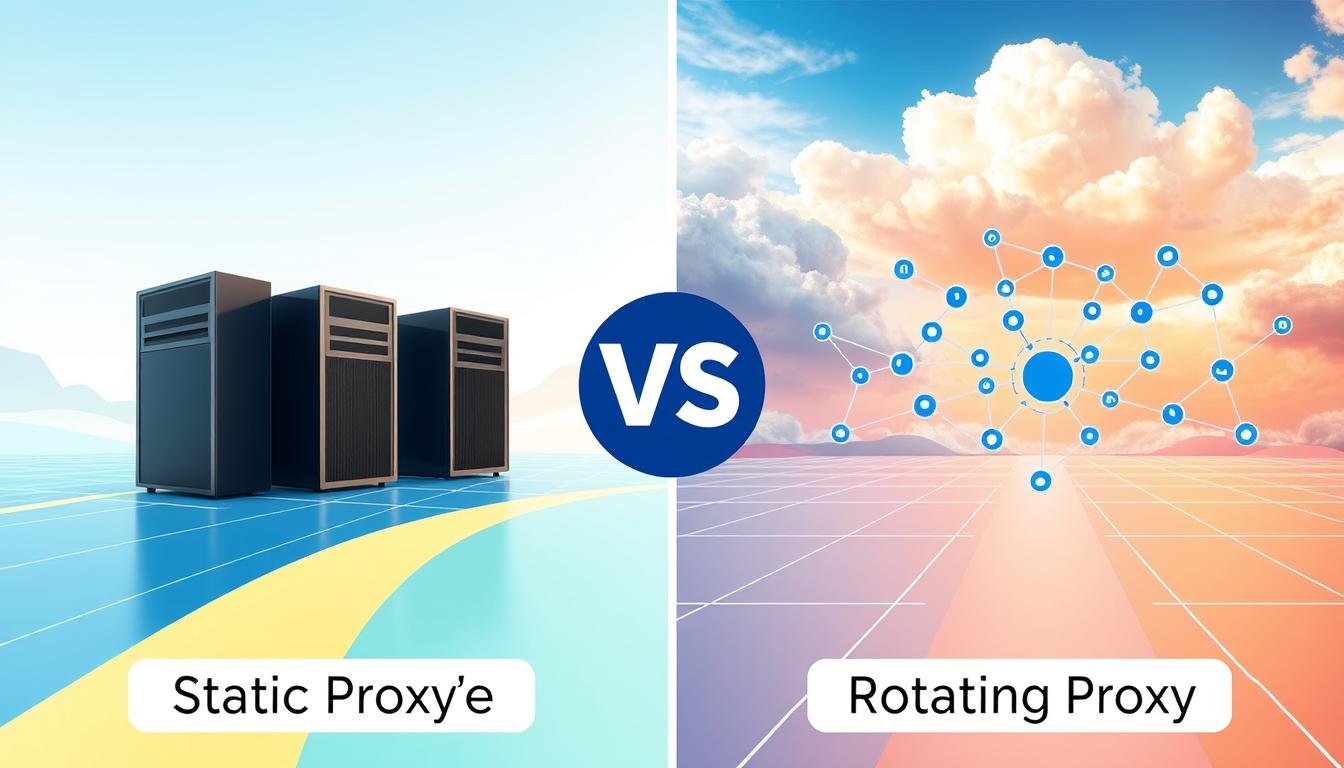FTC disclaimer: This post contains affiliate links and I will be compensated if you make a purchase after clicking on my link.
Are you tired of struggling to find the right blog software? Look no further! This guide will explore the best blog software and top platforms. It’s perfect for beginners and established brands alike.
From WordPress to user-friendly website builders like Wix and Squarespace, we’ll cover it all. We’ll look at the pros, cons, and unique features of each platform. This will help you choose the best solution for your content goals.
Key Takeaways
- Comprehensive guide to the best blog software and top blogging platforms
- Caters to both beginners and established brands in the content creation space
- Explores the pros, cons, and unique features of leading platforms like WordPress, Wix, and Squarespace
- Empowers readers to choose the right blogging solution for their specific needs and goals
- Covers a wide range of options to suit diverse requirements and skill levels
WordPress.org: The World’s Most Popular Blogging Platform
WordPress.org is the top blogging platform, powering over 43% of all websites. It’s a self-hosted, open-source platform. This means it’s very flexible and scalable for bloggers and content creators.
It has over 59,000 free WordPress plugins to add new features. There are also thousands of free and premium WordPress themes for design.
Pros of WordPress.org
WordPress.org is the best blogging platform for many reasons. It has great SEO capabilities and a user-friendly content editor. It also has a big community of developers and lots of online resources.
These features make it a top choice for both personal and professional bloggers. It’s a powerful, scalable blogging solution to build your online presence.
- Vast library of over 59,000 free WordPress plugins to enhance functionality
- Thousands of free and premium WordPress themes for design customization
- Robust SEO tools to improve visibility and discoverability
- Intuitive, customizable WordPress drag-and-drop content editor
- Thriving community and abundance of online resources for support and guidance
With its flexibility, scalability, and many features, WordPress.org is the best choice for bloggers. It’s a powerful, yet easy-to-use platform to build your online presence.

HubSpot CMS: All-in-One Platform for Marketers
The HubSpot CMS is a top choice for marketers. It’s a complete platform for making, managing, and improving your online space. It works well with HubSpot’s strong marketing and CRM tools. This makes your digital marketing work smoother.
Advantages of HubSpot CMS
The HubSpot CMS has a cool drag-and-drop website builder. It’s super easy to use, even if you’re not tech-savvy. It also has AI-powered features for making and customizing content. This means your site and blog will really speak to your audience.
It also connects well with HubSpot’s CRM platform. This helps you manage leads better. The HubSpot CRM integration gives you deep insights into your customers. This helps you make smarter marketing choices.
While it might take some time to get used to, the HubSpot CMS is great for marketers. It has top-notch analytics and reporting tools. These tools help you power your content and marketing efforts.

“The HubSpot CMS has been a game-changer for our marketing team. The integration with HubSpot’s other tools makes it easy to manage our entire digital presence in one place.”
Wix: Beginner-Friendly Website Builder with Blogging
Wix is great for new bloggers. It’s easy to use and doesn’t need coding skills. You can design your blog quickly with its drag-and-drop interface.
Wix has over 900 free customizable templates for bloggers. This lets users make a blog that shows off their style or niche. It also has advanced design tools for custom layouts and multimedia.
Wix focuses on both looks and function. It has 24/7 expert support and enterprise-grade security features. It also offers free website hosting on a global CDN for safe and fast performance.
Wix makes blogs load fast, improving the user experience. It also has advanced SEO tools to help bloggers get more traffic.
Wix helps bloggers connect with their audience. It has automated email marketing, newsletter functionality, and social media integration. This makes it easy to share new content.
Wix also helps bloggers make money. It supports display ads, online store integration, subscription services, and event offerings. It also has collaborative features for team work.
Wix gives bloggers built-in analytics for insights. This helps them understand their audience and plan better.
In summary, Wix is a great choice for beginners. It’s easy to use, has lots of templates, and offers many features. It’s perfect for starting a blog without hassle.

Squarespace: Award-Winning Design Templates
Squarespace is a top choice for bloggers. It offers stunning design templates. It also supports visual content and media libraries like Getty Images and Unsplash.
Its themes are mobile-optimized and easy to customize. This makes it great for those who want a beautiful blog. Squarespace is easy to use, even for those without tech skills.
Strengths of Squarespace
- Award-winning, visually-stunning blog templates that enhance brand identity and reader engagement
- Seamless integration with media libraries, allowing bloggers to easily incorporate high-quality visual content
- Support for multimedia content, including audio and video, to create a more immersive blogging experience
- Mobile-optimized themes that ensure a seamless user experience across devices, catering to the growing mobile audience
- Customization tools that enable bloggers to personalize their Squarespace blogging platform and maintain a cohesive brand aesthetic
- User-friendly features that make it easy for bloggers to manage and update their Squarespace websites without the need for extensive technical knowledge
While Squarespace may not have all the features of self-hosted sites, it’s great for design. It’s perfect for bloggers who want a professional look without tech hassle.

“Squarespace has been a game-changer for my blog. The templates are stunning, and the platform’s integration with visual content libraries has made it so easy to create a cohesive, visually-appealing online presence.”
– Jane Doe, Fashion and Lifestyle Blogger
Weebly: Ecommerce-Ready Blogging Platform
Weebly is great for creating an online space that mixes blog posts and e-commerce. It has features for bloggers and business owners.
Weebly’s drag-and-drop builder makes it easy to make nice-looking blog posts and product pages. You can also pick from many blog templates to match your brand.
Weebly shines with its e-commerce tools. You can take payments, manage stock, and track sales. Payment processing is available in 25 countries with PayPal and 11 countries with Stripe.
Its e-commerce tools do more than just take payments. You can offer shipping choices that shoppers want, set shipping rates based on price or weight. You can also drive sales with coupon codes to compete effectively and increase sales. It even handles taxes for US businesses.
For bloggers wanting to make money, Weebly is a big help. Branded digital gift cards can be rewards or marketing tools. Integrated email campaigns let you send emails from your site and store content.
Weebly is perfect for anyone wanting to create a beautiful, e-commerce-ready website. It lets you mix your blog and business goals easily.
Hostinger: AI-Powered Website Builder with Blogging
Hostinger is a top choice for web hosting and blogging. It offers an AI website builder and great blogging tools. You can easily make a website with its drag-and-drop editor, even if you’re not tech-savvy.
Benefits of Hostinger
Hostinger’s AI website builder has many features for bloggers and small business owners. Here are some key benefits:
- Effortless Website Creation: Hostinger’s AI can make a website in seconds. This lets you start your online presence easily.
- Ecommerce Capabilities: You can sell up to 500 products and use over 20 payment methods. This makes it great for making money from your blog.
- 24/7 Support: Hostinger’s customer support team is always ready to help. They make sure your website and blog are always working well.
- AI-Powered Product Information Generation: Hostinger’s AI can quickly create product information. This makes adding new items to your store easy.
- Free Domain and Hosting: Hostinger’s plans include a free domain name and business email. This helps you establish your online presence.
Hostinger has a 4.8/5 rating from 1,237 reviews and a 4.6/5 rating from 2,432 reviews. It’s trusted by many users. Whether you’re a blogger or a small business owner, Hostinger is a great choice.
Hostinger’s premium website builder plans start at $2.49 per month for 48 months. There’s a 79% initial discount. Business website builder plans start at $3.49 per month for 48 months, with a 75% initial discount. Hostinger also offers a 30-day money-back guarantee and 24/7 customer support. It’s a great option for building and maintaining your online presence.
Best Blog Software: Choosing the Right Platform
When picking the best blogging platform, think about a few key things. It should be easy to use, especially if you’re new to blogging. You want a platform that’s simple and doesn’t need a lot of tech know-how.
Look at how much you get for your money. Check out the blogging tools and if the platform can grow with you. Also, see if it’s good for SEO, if you can make money from your blog, and if it has good support.
By looking at these points, you can pick a platform that fits your goals, budget, and skills. There are many options, like WordPress.org and Wix.com. Each one is designed for different needs of bloggers and content makers.
| Factor | Considerations |
|---|---|
| Ease of Use | Intuitive interface, minimal technical expertise required |
| Value for Money | Affordable pricing, features that justify the cost |
| Blogging Features | Content management, media integration, SEO optimization |
| Scalability | Ability to grow and expand the blog as your needs evolve |
| SEO Friendliness | Search engine optimization features and capabilities |
| Content Monetization | Options for generating revenue from your blog content |
| Integrations & Support | Availability of third-party integrations and customer support |
Think about these points and look at the different platforms. This way, you can pick the best one for you, whether you’re a content creator or a business starting online.
Blogger: Simple and Free Blogging from Google
Looking to start a blog easily? Blogger might be perfect for you. It’s owned by Google and is free. It makes creating and managing your blog simple.
Blogger is easy to use. It has a drag-and-drop interface and many templates. You can set up your blog fast, even if you’re not tech-savvy. It lets you focus on writing great blog posts.
Blogger doesn’t have all the fancy features of other platforms. But, it’s easy to use and works well with Google tools. You can easily track your blog’s success with Google Analytics.
It’s also great for those on a budget. Blogger is free, so you don’t pay for hosting or domain names. Your blog will be safe and always online thanks to Google.
So, if you want a simple blog setup, Blogger is a good choice. It’s easy, works well with Google, and is free. It’s perfect for bloggers of all levels.
“Blogger is a great option for those who want to start a blog quickly and easily without any technical headaches.”
Ghost: Modern Publishing Platform for Writers
Ghost is a modern platform for bloggers and writers. It’s designed to help writers and journalists. It offers a clean space for storytelling.
Highlights of Ghost
Ghost is known for its simplicity. It’s different from other systems that can be too busy. Ghost has a simple design that lets writers focus on their work.
Ghost also helps with making money and connecting with readers. It has tools for memberships and email marketing. This makes it easy to build a loyal audience.
- Distraction-free writing environment
- Powerful content editing tools
- Built-in monetization and audience engagement features
- SEO-friendly design and customization options
- Streamlined, writer-centric approach
Ghost might not have as many customization options as WordPress. But, it’s great for writers who want a simple place to publish. It’s growing fast and always getting better. Ghost is a top choice for writers and content creators.
Medium: Blogging with a Built-in Audience
If you want to reach more people with your blog, Medium is a great choice. It has a huge audience of over 100 million monthly readers. By posting on Medium, you can use its reputation and reach more people.
Medium might not let you change things as much as other sites. But, it’s great for finding new readers and growing your blog. It’s perfect for those who want to be seen more online.
Advantages of the Medium Publishing Platform
- Get seen by Medium’s huge audience, making your content more visible.
- Use Medium’s good name and reach to draw in new readers.
- Look into Medium monetization through the Medium Partner Program.
- Enjoy easy-to-use writing and publishing tools.
- Get insights and analytics to improve your content.
Medium is great for anyone who wants to be seen more online. It’s perfect for writers, small business owners, or experienced bloggers.
“Medium’s focus on content discovery and reader engagement makes it a compelling choice for those seeking to grow their audience and build a professional online presence.”
Joomla: Open Source CMS with Blogging Capabilities
If you’re searching for a strong and adaptable open-source CMS with great blogging features, Joomla is a good pick. It powers millions of sites worldwide, from big companies to small businesses and online magazines. It’s also great for e-commerce sites.
Joomla stands out because it’s very customizable. The Joomla Extensions Directory has thousands of free and paid extensions. This lets users add many features to their sites and blogs. Whether you need something advanced or just want to manage your content, Joomla is open to developers.
Joomla uses PHP and MySQL, which is why many developers choose it. It also has a user-friendly interface. This makes it easy for people who aren’t tech-savvy to manage their sites and blogs.
New to Joomla? The Launch.joomla.org site offers a free way to start building your site right away. Joomla was named the Best Free CMS in 2022, the FOSS Awards CMS Winner in 2023, and the Best Open Source CMS in 2021. This shows it’s a top choice for blogging and managing content.
“Joomla is an excellent open-source CMS that offers robust blogging capabilities, making it a great choice for businesses, organizations, and individuals who need a flexible and customizable platform to manage their online presence and content.”
Whether you’re a developer or a business owner, Joomla is a great option. Its open-source nature, flexibility, and easy-to-use interface make it a strong contender.
Drupal: Flexible Platform for Developers
Drupal is an open-source CMS that’s flexible and powerful. It’s not as easy to use as some other options. But, it’s great for web developers because of its advanced features and customization.
It’s perfect for making complex blogs and websites. Drupal focuses on security, scalability, and managing content. This makes it great for big, enterprise-level sites.
Drupal is not easy to learn, but it’s worth it for tech-savvy bloggers and businesses. It has lots of features like user accounts and RSS-Feeds. You can customize it a lot to fit your needs.
Drupal websites are fast and work well because they use less resources. But, setting up a Drupal site takes about 10 minutes. WordPress sites are faster, taking about 5 minutes to set up.
Drupal is best for medium-scale businesses and big startups with complex needs. WordPress is better for small businesses and startups with simpler needs.








